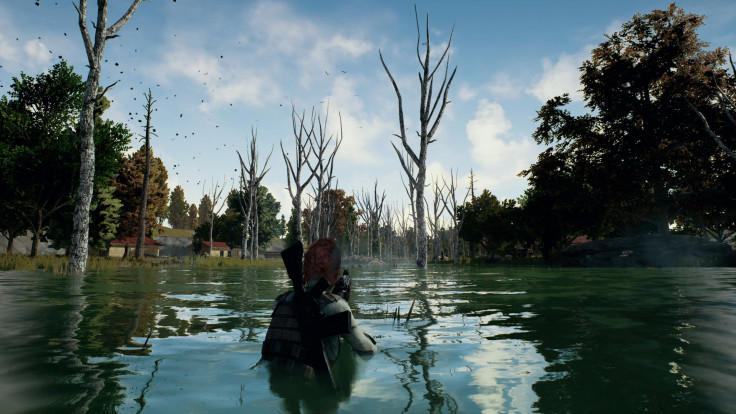There’s been a lot of talk about the PUBG dev team’s anti-cheat efforts in recent weeks, thanks to a noticeable uptick in frequency. Now an update from BattlEye (a popular anti-cheat software) suggests PUBG Corp. is wading into a much larger fight than it realized. The latest figures from BattlEye also make it easier to understand PUBG Corp.’s interest in developing new anti-cheat tools built specifically for PlayerUnknown’s Battlegrounds.
We’re coming up on the one-year anniversary of PUBG’s Early Access debut, capping off one of the most explosive growth periods ever experienced by a game developer. Unfortunately, the near-constant influx of new players in 2017 also seemed to create one of the most heavily concentrated pools of malicious actors in recent memory. For a few weeks, joining forces with BattlEye seemed to stymie some of the cheating. But the news suggests PUBG Corp. and its allies might be losing the war on PUBG cheaters. After banning more than 1.5 million accounts in 2017, Battleye was forced to respond to a massive influx of cheaters that yielded another 1 million bans last month. That is a one followed by six zeroes. All between Jan. 1 and Jan. 31, 2018.
We have banned over 1,044,000 PUBG cheaters in January alone, unfortunately things continue to escalate.
— BattlEye (@TheBattlEye) February 4, 2018
One million bans might not seem like much to fans of the industry’s largest games. It would be less than two percent of League of Legends’ audience, same goes for GTA Online, and (while the player pool is much smaller) we could probably be convinced that one million bans were earned by Dota 2 players during the game’s busiest months. But it represents a slightly larger chunk of PUBG’s global community, currently estimated to be around 30 million people. And if most cheating still happens in China, that figure would represent more than eight percent of local players. Cheating in Battlegrounds has become so common that Bluehole and PUBG Corp. disabled Steam’s internal family-sharing functionality to see if it would have a positive impact.
The good news is that PUBG Corp. has been working on new anti-cheat tools built specifically for their ultra-popular battle royale shooter. The new software isn’t meant as a replacement, and will complement the game’s existing monitoring tools. PUBG Corp.’s Head of Service Management & Anti-Cheat Dohyung Lee says the new software should debut next week. We’ll just have to hope it’s more effective than the current solutions.
PlayerUnknown’s Battlegrounds is available on PC and Xbox One.
Be sure to check back with Player.One and follow Scott on Twitter for more PlayerUnknown’s Battlegrounds news in 2018 and however long Bluehole supports PUBG in the years ahead.








![Best Gaming Mouse For Gamers With Smaller Hands [2025]](https://d.player.one/en/full/227430/best-gaming-mouse-gamers-smaller-hands-2025.png?w=380&h=275&f=fdcf47c1c5fc58d1e41d3be505c12568)










